Opera Adblock vs uBlock Origin - Detailed Comparison
We compare these on their design, performance, and resource usage
5 min. read
Updated on
Read our disclosure page to find out how can you help Windows Report sustain the editorial team. Read more
Key notes
- Opera Adblock is a simple adblocker that blocks all kinds of ads and trackers and allows you to add websites to the trusted sites list.
- uBlock Origin can do all that Opera Adblock can and more with its extensive set of features catered to power users.
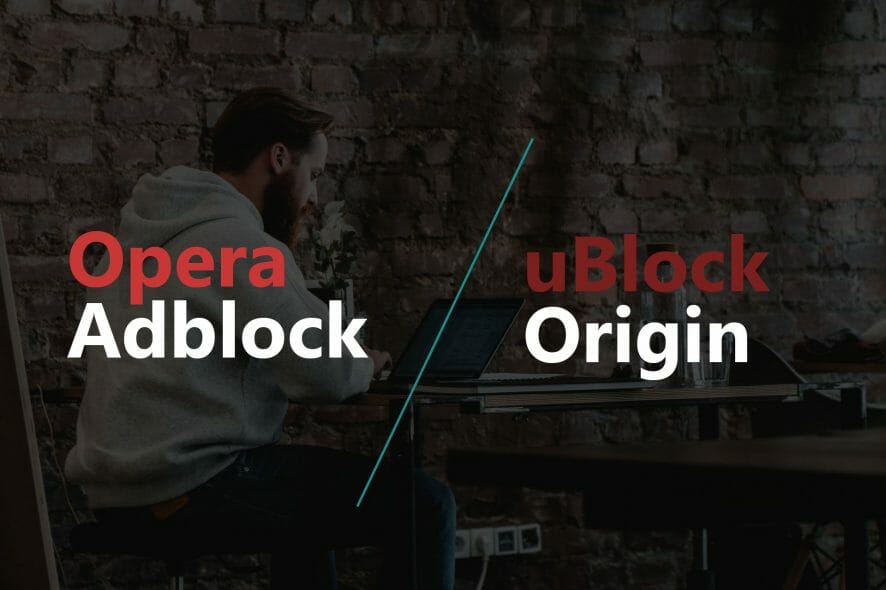
Ads on web pages help web admins monetize their content. However, some web pages have too many intrusive ads that ruin the browsing experience and, at times, even redirect to suspicious websites.
One way to avoid intrusive ads is to install an adblocker. There are plenty of ad blocker extensions like uBlock Origin that can help you block ads on websites.
However, installing an ad block extension means working with a third-party app on your browser that is heavy on your system resources. This is where browsers with built-in ad blockers shine.
Opera browser is one of the few browsers with a built-in adblocker. Now that you have an ad blocker built into your browser, do you need a dedicated ad blocker like uBlock Origin?
In this Oprea Adblock vs. uBlock Origin comparison, we have compared the two popular ad blockers on their effectiveness, interface, filter options, system load, and affordability. So, let’s get started with the comparison.
Opera Adblock vs. uBlock Origin – which is a better adblocker?
Compatibility and installation
uBlock Origin is a dedicated ad blocker available on several platforms, including Firefox, Opera, Safari, Chrome, Edge, and Chromium.
Opera Adblock, being a built-in ad blocker, is only available on the Opera browser, be it on mobile or desktop. Opera browser is available on Mac, Windows, Linux, Android, and iOS platforms.
You can install uBlock Origin from your browser’s web store, like Chrome Store. uBlock Origin is only available through Chrome Store and other official browser app stores, so don’t confuse it with uBlock.
Opera Adblock does not require any extension, as it comes pre-installed. So, when it comes to finding and setting up the adblockers, Opera Adblock has an edge as you don’t have to install anything.
UI and Design
The interface on both the ad blockers has nothing fancy. To access uBlock Origin, click the icon on the toolbar.
It will show the button to enable and disable it, statics for blocked ads, connected domains, and options for other features such as Log, Element Zapper, and Settings. Click the More options, and you can access more to customize webpage content even further.
For Opera, click the Menu icon and scroll to Privacy and Security to enable or disable the adblocker.
To customize the ad blocker settings on Opera, you need to access the Privacy and protection settings.
Both tools are easy to access and offer a no-nonsense interface.
It is when you go into the settings of uBlock Origin that things can get a little complicated. You can modify and micro-manage general settings, privacy options, and default behavior.
uBlock Origin settings offer access to filter lists, your filters and rules, trusted sites, and more. uBlock Origin offers many features for power users, but if you prefer something click and go, Opera AdBlock is a better choice.
Performance
Both the ad blockers are enabled by default and will start blocking ads on the website as soon as you land.
When using Opera on a smartphone, you may notice ads even when Adblock is enabled. These are known as Acceptable Ads. However, you can disable even filtered ads in the settings.
After landing on a web page on Opera, you can notice a blue shield icon in the top right corner. Clicking on the Privacy Protection icon will show how many ads are blocked on this website.
To allow ads on any website, click the shield icon and choose to Turn off for this site.
Filter Options
As discussed above, uBlock Origin has more filter options than Opera Adblock. Opera Adblock doesn’t have any filter option.
With uBlock Origin, you can change the default behavior, disable the cosmetic filter, block media elements with size, block remote fonts, and disable JavaScript.
You can also add your filters or import and append an existing file and add/remove rules through manual addition or importing a file. You can add and remove trusted sites to allow some websites you trust to show ads.
Resource usage
Browser operations are resource-hungry tasks. Add extensions and add-ons that consistently run in the background; it can increase resource usage and affect system performance.
While uBlock Origin is relatively less resource-hungry than other ad blockers, Opera Adblock is still the most efficient browser due to built-in adblocking.
Which program is the best?
uBlock Origin is an excellent ad blocker offering an extensive set of features to micro-manage every aspect of a website. Opera Adblock is a simple built-in ad blocker that blocks ads with a few customization options.
If you are using an Opera browser, the built-in ad blocker works great. It blocks ads, allows you to add a website to the exception list, and even blocks trackers.
uBlock Origin is useful for both the average internet user who wants to block annoying ads and power users looking to do more than block ads.
If you don’t need all the additional features and rather avoid installing a third-party ad block extension to control system resource usage, Opera Ad-block is a better choice.
In case you decide to use the default option, be sure to check our guide on how to enable or disable Opera GX adblocker.
Many also reported that Opera GX adblock is not working on YouTube, but we have addressed that in another guide.
If you’re not familiar with Opera’s adblocker, we have a great guide on how to block ads in Opera, so don’t miss it.
Take both blockers for a spin to get a better idea of which tool meets your requirements best.

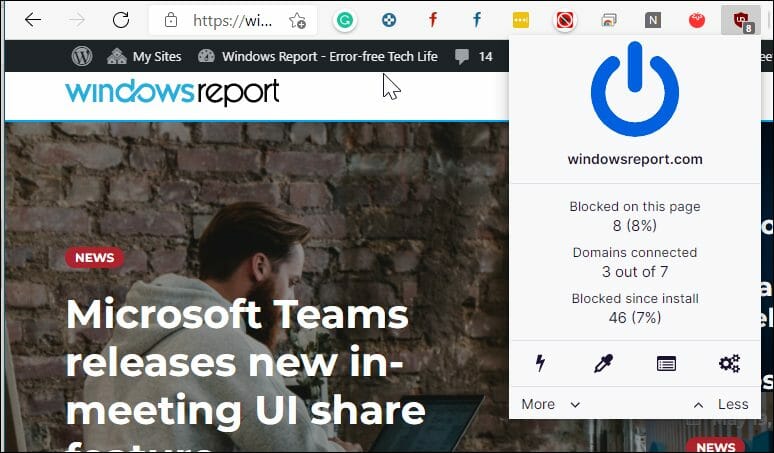
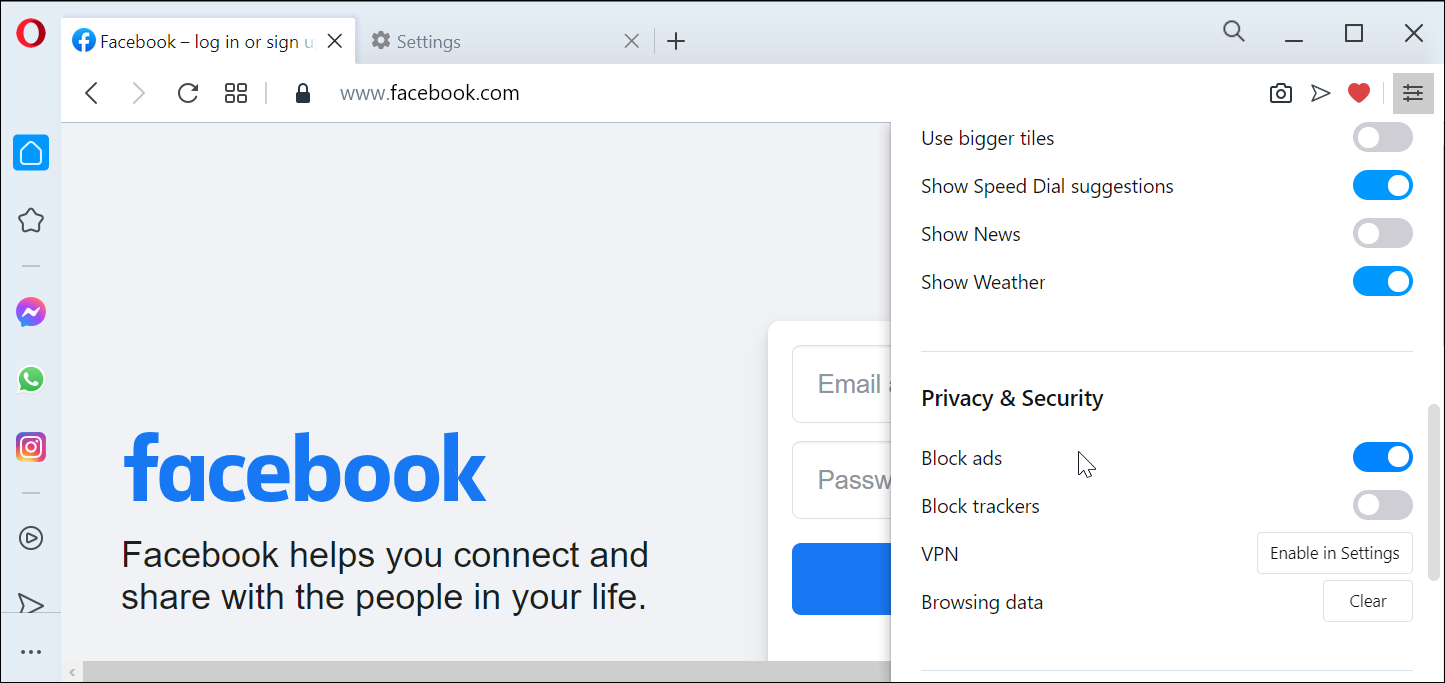

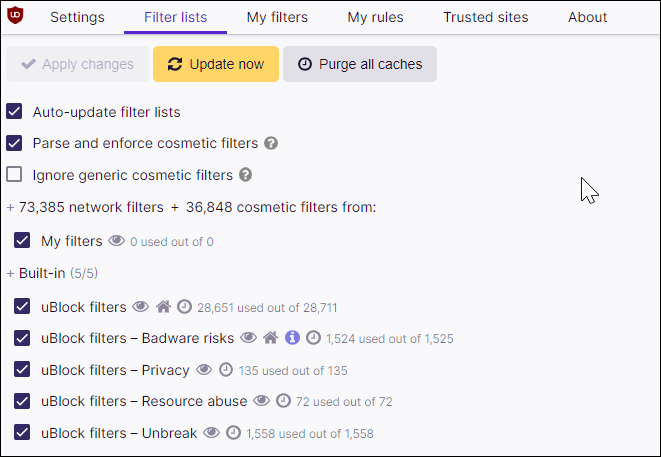
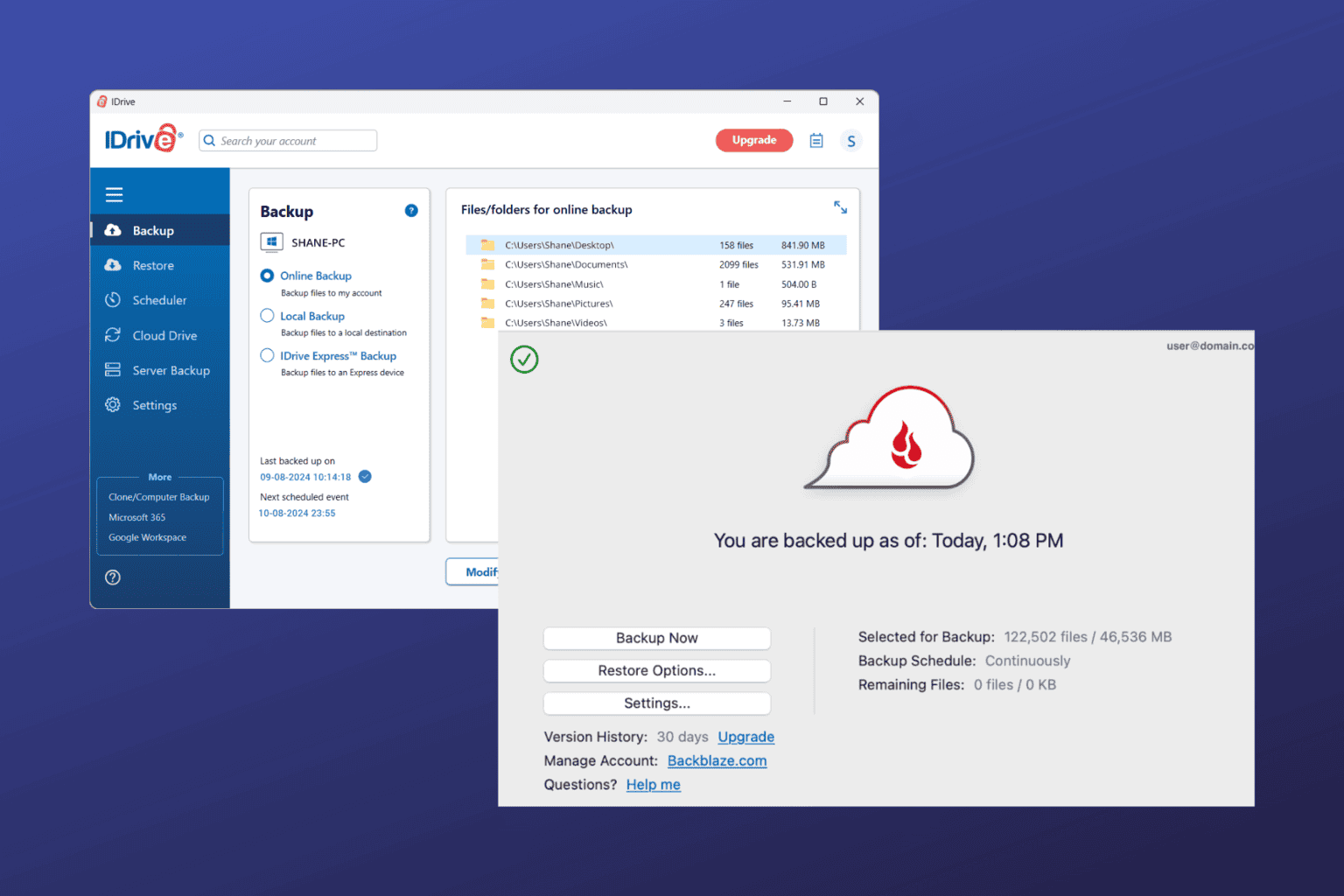

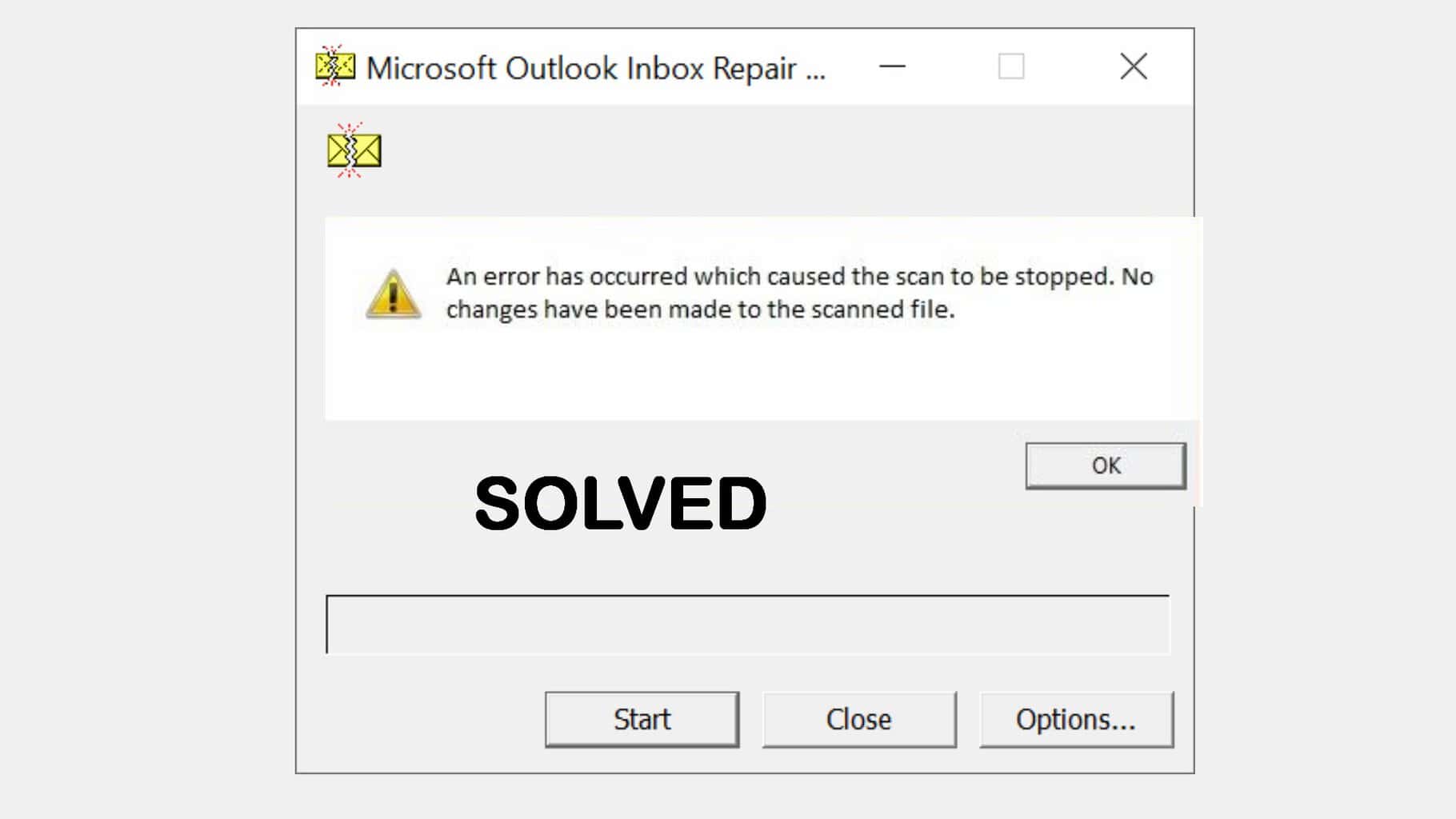



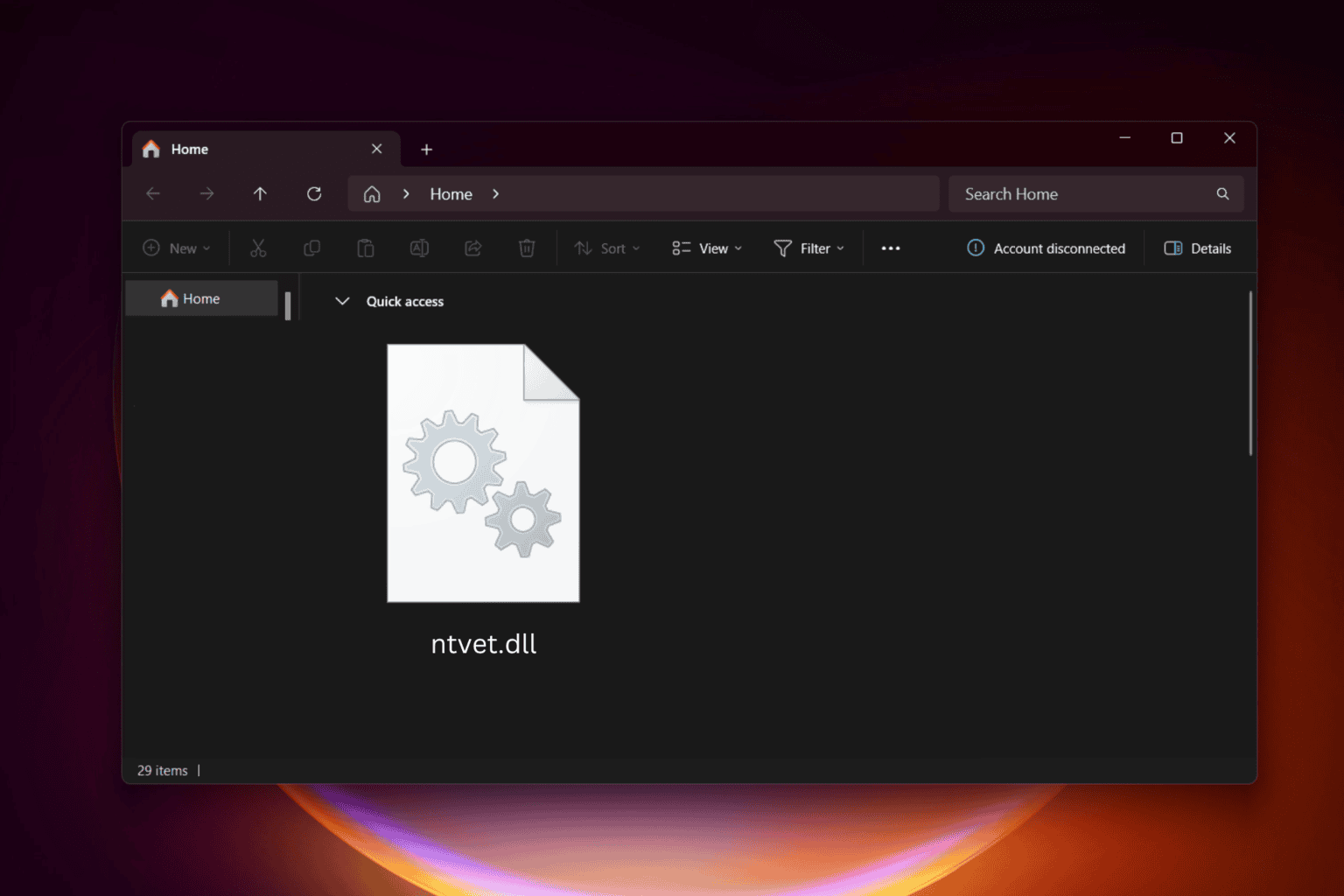

User forum
0 messages